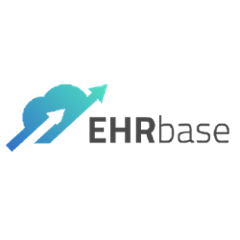EHRbase
EHRbase is an openEHR Clinical Data Repository, providing a standard-based backend for interoperable clinical applications. It implements the latest version of the openEHR Reference Model (RM 1.0.4) and version 1.4 of the Archetype Definition Language (ADL). Applications can use the capabilities of EHRbase through the latest version of the openEHR REST API and model-based queries using the Archetype Query Language.
Release Notes
2020, October 1
v0.14.0 - second beta release. Please see EHRbase Documentation for further details.
2020, May 14
This release of EHRbase (v0.13.0) is the first beta release. Please see EHRbase Documentation for further details.
📝
Documentation
EHRbase Documentation is build with Sphinx and hosted on Read the Docs.
Getting Started
These instructions will get you a copy of the project up and running on your local machine for development and testing purposes. Please read these instructions carefully. See deployment for notes on how to deploy the project on a live system.
Prerequisites
You will need Java JDK/JRE 11 (preferably openJDK: e.g. from https://adoptopenjdk.net/)
You will need a Postgres Database (Docker image or local installation). We recommend the Docker image to get started quickly.
When installing locally, the Postgres Database (at least Version 10.4) needs the following extensions:
- temporal tables
git clone https://github.com/arkhipov/temporal_tables.git make sudo make install make installcheck
- jsquery
git clone https://github.com/postgrespro/jsquery.git cd jsquery make USE_PGXS=1 sudo make USE_PGXS=1 install make USE_PGXS=1 installcheck
Installing
1. Setup database
NOTE: Building EHRbase requires a properly set up and running DB for the following steps.
Run ./db-setup/createdb.sql as postgres User.
You can also use this Docker image which is a preconfigured Postgres database:
docker network create ehrbase-net
docker run --name ehrdb --network ehrbase-net -e POSTGRES_PASSWORD=postgres -d -p 5432:5432 ehrbaseorg/ehrbase-postgres:latest
(For a preconfigured EHRbase application Docker image and its usage see below)
2. Setup Maven environment
Edit the database properties in ./pom.xml if necessary
3. Build EHRbase
Run mvn package
4. Run EHRbase
Replace the * with the current version, e.g. application/target/application-0.9.0.jar
java -jar application/target/application-*.jar
Authentication Types
1. Basic Auth
EHRbase can use Basic Authentication for all resources. This means you have to send an 'Authorization' header set with keyword Basic followed by the authentication information in Base64 encoded username and password. To generate the Base64 encoded username and password combination create the string after the following schema: username:password.
The Basic Auth mechanism is implemented as "opt-in" and can be activated either by providing an environment variable SECURITY_AUTHTYPE=BASIC with the start command or by adding the value into the target application.yml file.
Currently we have support one user with password which can be set via environment variables SECURITY_AUTHUSER and SECURITY_AUTHPASSWORD. By default these values are set with ehrbase-user and authPassword=SuperSecretPassword and can be overridden by environment values. Alternatively you can set them inside the corresponding application.yml file.
The same applies to the admin user, via SECURITY_AUTHADMINUSER, SECURITY_AUTHADMINPASSWORD and their default values of ehrbase-admin and EvenMoreSecretPassword.
2. OAuth2
Environment variable SECURITY_AUTHTYPE=OAUTH is enabling OAuth2 authentication.
Additionally, setting the following variable to point to the existing OAuth2 server and realm is necessary: SPRING_SECURITY_OAUTH2_RESOURCESERVER_JWT_ISSUERURI=http://localhost:8081/auth/realms/ehrbase
In the given OAuth2 server configuration the roles user and admin are expected to be configured. Users should have their roles assigned accordingly.
Running the tests
This command will run all tests from tests/robot folder. DB and server application will be started/stopped by the tests accordingly. You must not start them by hand.
NOTE: Make sure you meet the PREREQUISITES mentioned in tests/README.md prior to test execution.
Please Check the README in
testsfolder for more details.
cd tests
./run_local_tests.sh
Deployment
java -jar application/target/application-*.jarYou can override the application properties (like database settings) using the normal spring boot mechanism: Command-Line Arguments in Spring Boot- Browse to Swagger UI --> http://localhost:8080/ehrbase/swagger-ui.html
Built With
- Maven - Dependency Management
License
EHRbase uses the Apache License, Version 2.0 (https://www.apache.org/licenses/LICENSE-2.0)
Acknowledgments
EHRbase contains code and derived code from EtherCIS (ethercis.org) which has been developed by Christian Chevalley (ADOC Software Development Co.,Ltd). Dr. Tony Shannon and Phil Berret of the Ripple Foundation CIC Ltd, UK and Dr. Ian McNicoll (FreshEHR Ltd.) greatly contributed to EtherCIS.
EHRbase heavily relies on the openEHR Reference Model implementation (Archie) made by Nedap. Many thanks to Pieter Bos and his team for their work!
EHRbase is jointly developed by Vitasystems GmbH and Peter L. Reichertz Institute for Medical Informatics of TU Braunschweig and Hannover Medical School
